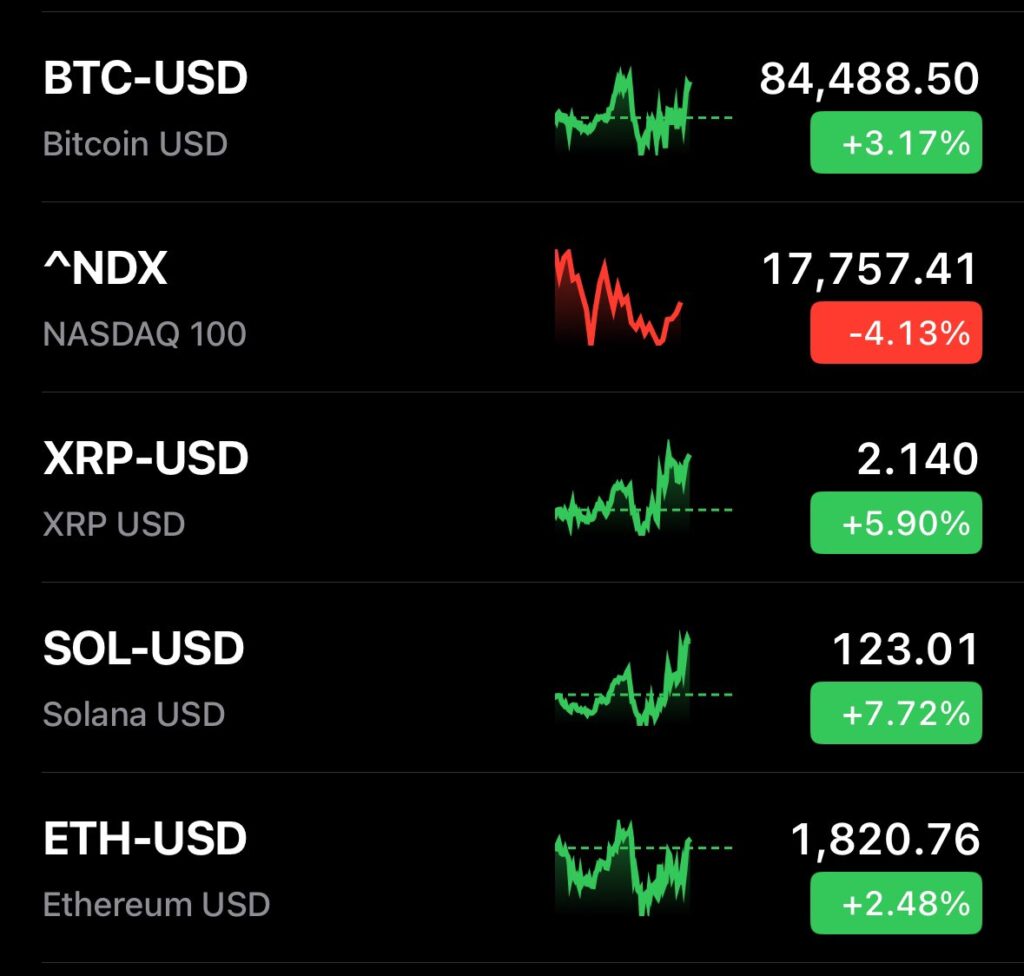Bitcoin and the Stock Market Out of Sync After Trump’s Tariffs

For much of the past decade, Bitcoin and traditional stock markets have shown periods of surprising correlation — both reacting to macroeconomic shifts, monetary policy, and investor sentiment. But in the wake of new tariff announcements, the two have sharply diverged. While equities stumbled, Bitcoin surged. This decoupling raises a critical question: why are Bitcoin and the stock market now moving out of sync?

What Sparked the Divergence?
The catalyst was the latest round of tariffs imposed by the U.S. on a range of Chinese goods, and the retaliatory measures that followed. Stocks reacted predictably: fears of a slowdown in global trade, rising costs for companies, and inflationary pressures sent major indices like the S&P 500 and Nasdaq lower. Investors braced for reduced earnings and potential instability.
Bitcoin, on the other hand, went up — and fast.
Why Is Bitcoin Rallying?
- Bitcoin as a Hedge Against Economic Nationalism
Tariffs are a form of economic protectionism, signaling a retreat from globalization. For many, Bitcoin is seen as a hedge against centralized policies and fiat currency instability. As global trade tensions escalate, Bitcoin benefits from being a borderless, decentralized asset that’s immune to government tariffs. - Safe Haven Narrative Reignited
Though Bitcoin’s status as “digital gold” has been debated, moments of geopolitical stress often send money flowing into BTC. Just as gold often rises during periods of global uncertainty, Bitcoin now appears to be playing a similar role — at least among crypto-savvy investors. - Flight from Traditional Markets
Investors looking for alternatives to a shaky equities market may be rotating into crypto. Bitcoin’s fixed supply and global liquidity make it attractive when traditional markets are roiled by policy-driven risk. - Retail Traders Are Back
Bitcoin’s recent run-up isn’t just institutional. Retail interest is rising again, spurred by headlines and a broader frustration with inflation and market volatility. With Bitcoin being more accessible than ever through ETFs and major platforms, retail money is moving in — even as the stock market falters.
Why the Stock Market Is Reacting Differently
Tariffs directly impact the real economy — affecting corporate profits, consumer prices, and supply chains. Stocks are tethered to earnings expectations and company fundamentals. Higher tariffs raise costs for businesses, shrink margins, and can hurt consumer demand.
Bitcoin, however, doesn’t have earnings reports or production costs in the traditional sense. It reacts more to macro sentiment and narratives than economic data or earnings seasons.
A New Chapter in Bitcoin’s Story?
The recent divergence suggests Bitcoin may be entering a new phase — one where it acts more like an alternative asset than a speculative tech stock. If this trend continues, investors might begin treating Bitcoin less like a “risk-on” asset and more like a hedge against systemic shocks.
Still, it’s too early to call this a permanent decoupling. Bitcoin remains volatile and sensitive to its own ecosystem news — regulatory changes, ETF flows, and technological shifts. But the current market behavior hints at a maturing asset class responding independently to macro events.




